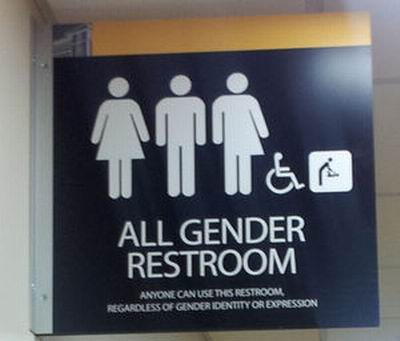
|
|

|
|
| April 24, 2024 |
|
How much is the 'bathroom' bill going to cost us? 
North Carolina's reputation as the South's most progressive state brought enormous economic benefits. The transgender bathroom debate shows how things are changing – and could hold national lessons.
Facebook’s spending is a sign of North Carolina’s pull on corporate America, boosting it to the second-largest state economy in the Southeast, behind Florida and ahead of Georgia. But that strong economic foundation, built over decades, is showing signs of cracks, observers say. The cracks appeared even before a hastily passed law that critics say discriminates against lesbian, gay, bisexual, and especially transgender Americans – a law that means North Carolina “just became the Bull Connor of the tech industry,” says Mike Capra, an Internet talk show host, referring to the civil-rights-era Birmingham, Ala., official who used his authority to block racial integration. To critics here in the Tar Heel State, House Bill 2 flies in the face of a long-cultivated image of North Carolina as a reasonably welcoming Southern state with growing, thriving urban areas – a success attributable to heavy state investment, particularly in education and training, which had the knock-on effect of attracting more top-end talent. The state is the nation’s top importer of educated people. Now, North Carolina has become a crucible for more than just gender identity rights but how economics mix with attempts to legislate morals. What happens next may be ultimately defined not just by moral strictures in the most socially conservative corners of America, but by the thirst for economic salvation from devastating levels of poverty. The region as a whole is watching to see if conservative principles cost North Carolina its comeback. “We’re talking billions and billions of dollars at stake here,” says Andrew Brod, an economist at the University of North Carolina-Greensboro. “They’re playing with fire.” North Carolina’s law has been targeted by corporate America because it was the first to demand that people be prepared to show their birth certificate in order to use the bathroom. The law “is not a direction in which states move when they are seeking to provide … thriving hubs for business and economic development,” wrote Facebook CEO Mark Zuckerberg in a signed letter – though the company hasn’t signaled any definitive moves around future investments. Moreover, this is still the South, where memories haven’t faded regarding other famous civil rights battles over bathroom and water fountain eligibility that took place here. A growing boycott campaign now involves perhaps as many as 1,000 high-paying jobs lost, including 400 from PayPal canceling a multimillion dollar expansion. The list of canceled concerts and shows – including Bruce Springsteen, Pearl Jam, Ringo Starr, and Cirque de Soleil – so far have cost millions of dollars in lost revenue. Thursday, the National Basketball Association said that the 2017 All-Star Game won’t be played in Charlotte unless the law is changed. Total losses are difficult to quantify, especially as no one can measure what Allen Freyer of the North Carolina Justice Center calls the “silent protest” of companies and entrepreneurs quietly scratching the state off their list. (Source: Christian Science Monitor) Story Date: April 25, 2016
|